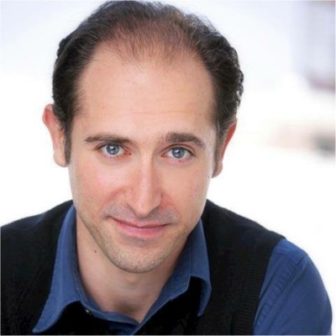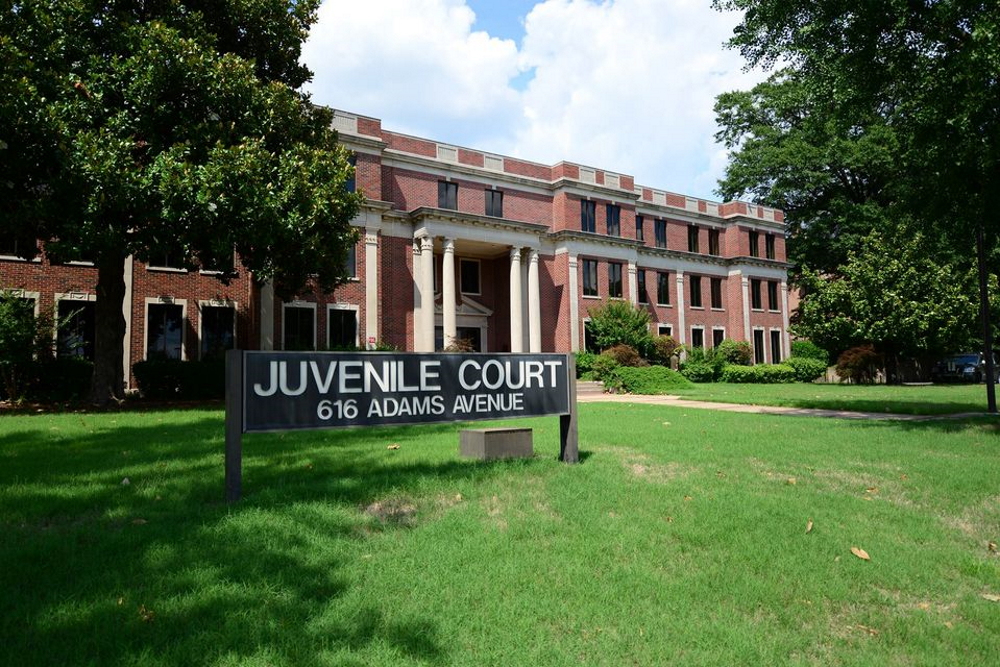When Michael Khanlarian began teaching incarcerated youth about the work of William Shakespeare, he never expected them to develop a rap about a 16th-century play.
Using text from the play “Henry V,” a play about the titular British king and his rise to power, students created a cypher — a kind of freestyle rap battle — using Henry’s speeches.
“It was honestly one of the most incredible things I’ve ever seen,” Khanlarian said.
Working with the Tennessee Shakespeare Company, Khanlarian and his colleague Carmen-Maria Mandley have been teaching detained youth inside the Shelby County, Tennessee juvenile detention center. They believe teaching Shakespeare can help give a voice to youth who might otherwise lack it.

Michael Khanlarian
“It brings young people who wouldn’t have access to it and gives them a language to encompass the largess of what they’ve been through,” Mandley said. “They learn to advocate for themselves. If something bothers them, they’ll say it instead of bottling it up.”
Since the beginning of the COVID-19 pandemic however, Mandley and Khanlarian have been forced to teach their classes online, which poses unique challenges for theater.
Having to rewrite much of their lesson plans, programs like this one have had to find new, socially distant ways of engaging young people. This includes holding virtual readings and rethinking how youth act out their lines.
‘We start by finding common values’
Under normal, non-COVID circumstances, Khanlarian says, youth in the detention facility begin their lessons on Shakespeare by defining a set of core ground rules for the class.
“We start by finding common values, and put them in the middle of the circle,” Khanlarian said. “Everyone carries the values throughout the community, and when new students are added, we revisit and they sometimes change.”
Once a series of values are established, students go straight into learning Shakespearian poetry. In what the coordinators describe as a five-day “poetry intensive,” students will be given an opportunity to read works and create their own poetry.
Learning to speak in their own voices helps youth develop a vocabulary for their own experiences and contextualize why they are incarcerated.
“We might start with a concept, and try to define it — like trying to free-associate what the word ‘man’ means, and work through that,” Khanlarian said. “The initial thought we have is just ‘You tell me whatever you think, and that’s right.’”
To see or not to see
 Though COVID-19 has changed virtually every part of life in the United States, staff at the juvenile detention center have tried to host programming like the Shakespeare classes on a consistent basis for youth.
Though COVID-19 has changed virtually every part of life in the United States, staff at the juvenile detention center have tried to host programming like the Shakespeare classes on a consistent basis for youth.
Now, rather than meeting with program leaders like Mandley and Khanlarian in person, youth sit in a room with detention center staff and participate with organizers via videoconference.
According to Joyce Anderson, a program coordinator at the center, youth have become fairly resilient at changing to the online format.
“I’ve been really amazed at how the youth have taken to changes during COVID,” she said. “They quickly understood. They appreciate our virtual visitors coming in, and they have adapted to it.”
However resilient the youth are, the new online format is not without its quirks for organizers like Khanlarian, who has had to adapt to new ways of teaching.
“The online format is — different,” he said. “I can’t see them, but I think they can see me. We still do readings, and we have them participate actively, we still keep them engaged.”
Detention center staff cite confidentiality concerns as the reason why organizers are not able to see the youth, though they clarified youth can still see Khanlarian when they are in class.
Other than the visual issues, classes function in a similar manner to before. Still focusing on core group values and participatory readings of Shakespeare’s works, students have been working on a virtual production of “Hamlet.”
‘We did it as volunteers for years’

Deidra Bridgeforth
When Assistant Chief Deidra Bridgeforth first assumed command of Shelby County’s juvenile justice operations in 2015, she knew that deep changes would need to be made to improve relationships between staff and youth.
She adopted a model of “programmatic” juvenile incarceration, which stresses enrichment and engagement over discipline and lockdowns.
“Staff absolutely had to buy into that process,” Bridgeforth said. “It was tough, but I had to convince them we aren’t there to guard children, we’re here to mentor.”
In the beginning, she relied on and still relies on volunteers to provide a host of programming including art therapy and until recently, the Shakespeare program. Beginning strictly as a volunteer venture, for the last three years those classes have been subsidized by a federal grant.
The grant, from the National Endowment for the Arts (NEA) for juvenile justice work, is described by Mandley as exceptionally competitive, with only a handful of programs from across the country receiving them.
“We did it as volunteers for years, but only recently have we been able to receive funding for it,” Mandley said. “That’s pretty common — way more juvenile justice programs are not getting funding than those that are.”
She refused to say how much the NEA grant is, but described it as “generous.” The NEA did not respond to requests about the grant award amount.
Since she became assistant chief, Bridgeforth has believed that programs like the Shakespeare class succeed at enriching youth in the facility.
Though it remains unclear whether the program has an impact on overall recidivism long term, Anderson says there have been noticeable differences behaviorally.
The Shakespeare class “gives them a way of thinking about how other people have dealt with anger, how characters dealt with frustrations,” Anderson said. “It gives them a way of understanding that. We have seen a decrease in fights, and I think this is a piece of it.”
For more information on Re-entry, go to
► JJIE Resource Hub | Re-entry
For both staff at the detention center, and the theater company, they believe that providing youth with an expanded vocabulary also gives the young people increased sense of control in their lives.
More than simply trying to modify bad behaviors, Bridgeforth believes the classes create more well-rounded members of society.
“One of the most profound conversations I’ve ever had with a youth, they told me that incarceration helped them, and we as an agency helped him ... because his life had spiraled out of control,” she said. “This program lets them leave with a sense of dignity and pride.”
